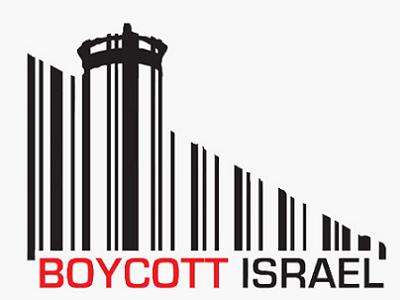
The Israeli government and its international supporters continued to crack down on the Boycott, Divestment, and Sanctions (BDS) movement, as five members of an American interfaith delegation to Israel and the occupied Palestinian territory were prevented from boarding their flight from Washington DC to Tel Aviv on Monday.
US-based organization Jewish Voices for Peace (JVP) released a report saying five members of the delegation were denied entry to Israel, allegedly due to their activism with the BDS movement, which targets companies that act in compliance with Israel’s illegal occupation of East Jerusalem and the West Bank.
JVP said that, as the delegation tried to check into its Lufthansa flight at Dulles International Airport, they were told that the Israeli government had ordered the airline not to let five passengers aboard, with a Lufthansa spokesperson confirming to the group that the members were not allowed to fly as per the Israeli government’s request.
Five interfaith leaders denied access to Israel –seen as enactment of BDS travel ban. @AMPalestine Presbyterian Peace Fellowship pic.twitter.com/NTGfSWnvKE
— JewishVoiceForPeace (@jvplive) July 24, 2017
Lufthansa was reportedly not made aware of the reason for the order.
JVP identified the five members that were denied entry on the flight as JVP Deputy Director Rabbi Alissa Wise, Alana Krivo-Kaufman and Noah Habeeb, both members of JVP, Rick Ufford Chase of the Presbyterian Peace Fellowship, and Shakeel Syed, a national board member with American Muslims for Palestine.
According to the group, the other 18 members of the Interfaith Network for Justice in Palestine delegation arrived in Israel on Monday morning in Israel and were allowed to enter after several hours of detention and questioning, which they said particularly targeted the group’s Muslim members.
Boycotting Israel, or #BDS, could become a felony punishable by up to 20 years in prison if Congress passes a new bill. pic.twitter.com/YIerNSyrQ2
— AJ+ (@ajplus) July 24, 2017
Israel’s parliament, the Knesset, passed an amendment into law in March forbidding entry into Israel and the occupied Palestinian territory to any foreign individual who “knowingly issues a public call for boycotting Israel that, given the content of the call and the circumstances in which it was issued, has a reasonable possibility of leading to the imposition of a boycott.”
JVP, which openly supports the BDS movement, highlighted that Monday’s incident was believed to be the first time that the amendment was enforced before passengers boarded their flights to Israel, and “the first time that Israel has denied entry to Jews, including a rabbi, for their support of BDS.”
“Israel denied me the ability to travel there because of my work for justice for Palestinians, even though I’m Jewish and a rabbi,” Rabbi Alissa Wise said in the JVP statement. “I’m heartbroken and outraged. This is yet another demonstration that democracy and tolerance in Israel only extend to those who fall in line with its increasingly repressive policies against Palestinians.”
We're running a special fundraiser to help us confront the attacks on our growing BDS movement. Donate if you can https://t.co/0RVSXbfEk0 pic.twitter.com/MOPjMzQdsy
— BDS Movement (@BDSmovement) July 25, 2017
The BDS movement was founded in July 2005 by a swath of Palestinian civil society as a peaceful movement to restore Palestinian rights in accordance with international law through strategies of boycotting Israeli products and cultural institutions, divesting from companies complicit in violations against Palestinians, and implementing state sanctions against the Israeli government.
The Israeli government, meanwhile, has grown increasingly concerned about the growth of the BDS movement, as the movement’s support base has expanded to include companies, universities, and religious institutions around the world divesting from organizations complicit in Israel’s violation of Palestinian rights.
In January 2016, the Israeli Knesset held a conference to discuss ways to combat BDS, and dedicated 100 million shekels ($26 million) of the government’s 2016 budget to the issue.
(Maan, PC, Social Media)




